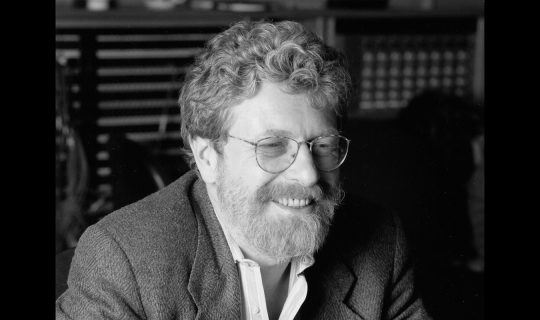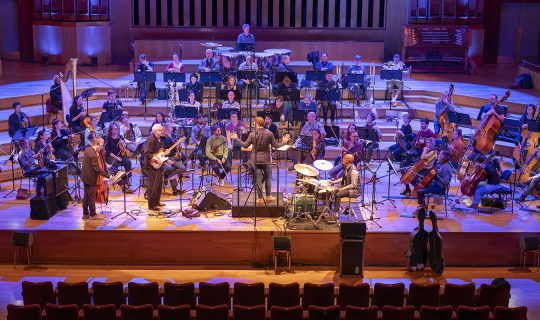January 12, 2013
Trumpeter Kenny Dorham has been described by jazz critic Gary Giddins as “virtually synonymous with underrated.” While his albums for Blue Note and other labels contain some of the most virtuosic and lyrical playing of the 1950s and 1960s, he never gained the attention of the public in the way players like Donald Byrd, Freddie Hubbard or Lee Morgan did. Still, he made numerous sideman appearances on classic albums by Art Blakey, Andrew Hill, and frequent partner Joe Henderson, among others, and his releases as a leader hold their own with anything else in the Blue Note catalog. He made his debut as a leader for the label with 1955’s Afro-Cuban and 1956’s ’Round About Midnight at the Café Bohemia, but didn’t make another Blue Note album under his own name until Whistle Stop, in 1961.
Whistle Stop, recorded January 15, 1961, is a bluesy, swinging hard bop session featuring top-flight players: In addition to Dorham, Hank Mobley fills the tenor saxophone chair, Kenny Drew is behind the piano, Paul Chambers mans the upright bass, and Philly Joe Jones is on drums. All seven of the album’s compositions are by the trumpeter, and they allow the band to explore a variety of moods and rhythmic approaches, without ever failing to provide the toe-tapping grooves listeners were after.
Things get off to a rocking start with “Philly Twist,” which despite being recorded in 1961, only a year after Chubby Checker’s version of the Hank Ballard song was a massive pop hit, had nothing to do with the dance craze. Instead, it was a salute to Philly Joe Jones, and with its relentless, driving rhythm provided a chance for him to rock the kit like only he could. Jones hammers at the snare drum as the horns take fierce solos, Dorham blowing hard and fast and Mobley honking like he’s walking a bar.
The second track, “Buffalo,” is named for the animal, not the city, and it’s a slow burner, the band strutting a deep blues groove. Mobley solos first, followed by Dorham, as the rhythm section rolls along in a way that seems intended to make listeners want to do the Stroll. (Look it up.) Pianist Drew’s solo, too, is a marvel of economical expression, spinning out extrapolations on the chords that are somehow familiar and unique at once.
The third piece, “Sunset,” is a Latin number, featuring an uptempo, rippling piano line and intricate hi-hat work from Jones. Dorham plays with a mute, though it doesn’t dim his energy level a bit—he cuts loose with high-speed, staccato runs. Mobley takes a typically muscular solo as the rhythm section churns behind him, and when it’s Drew’s turn in the spotlight, he erupts in rippling flurries of notes. Chambers maintains the groove during his solo, and then the horns return for a subtle restatement of the melody.
The title track is the fastest piece on the record; “Whistle Stop” is a reference to train travel, and the band absolutely tears down the track, with Jones driving them as hard as any engineer. Again, Hank Mobley is the first man out of the station, galloping along as the drums crash and clatter behind him. Dorham is in a slightly mellower mood, but still allows himself to be carried along by the momentum being established all around him.
“Sunrise in Mexico” takes the album in a surprising and abstract direction. It’s a Latin number, but a far more adventurous one than its mirror image, “Sunset.” Chambers is strumming the strings of his bass like a giant guitar early on, and the drums are a martial battery rather than a danceable rhythm. The solos all have a bluesy swing, but they end more suddenly than one might expect—Drew’s in particular—notes falling away suddenly like Wile E. Coyote sprinting off a cliff, noticing there’s nothing beneath him, and hurtling toward the earth. And the piece doesn’t come to a natural end, either; it fades out, something unexpected on a jazz album, especially in this era.
“Windmill,” the second-to-last track on Whistle Stop, is another sprint, not as fast as the title cut but close. The titular edifice must have been spinning in a hurricane, in Dorham’s mind. For the only time on the record, Paul Chambers takes a solo with a bow, and that’s followed by Philly Joe Jones’ solo, which is an eruption that would make Art Blakey shake his head in admiration.
The album concludes with a surprise: a one-minute, gently swaying showcase for the leader’s upper-register playing. “Dorham’s Epitaph” brings Kenny Dorham’s return to the Blue Note roster to a quick, but nevertheless rousing close. Whistle Stop is an album deserving of all the attention it’s gotten over the years, and more—it’s one of the best hard bop records of the early 1960s, a small but glittering jewel in the Blue Note discography.
Photos courtesy of Mosaic Images




